O P Gauba Summary: Concept of Power | Sociology Optional for UPSC (Notes) PDF Download
Power: Its Role and Understanding in Politics
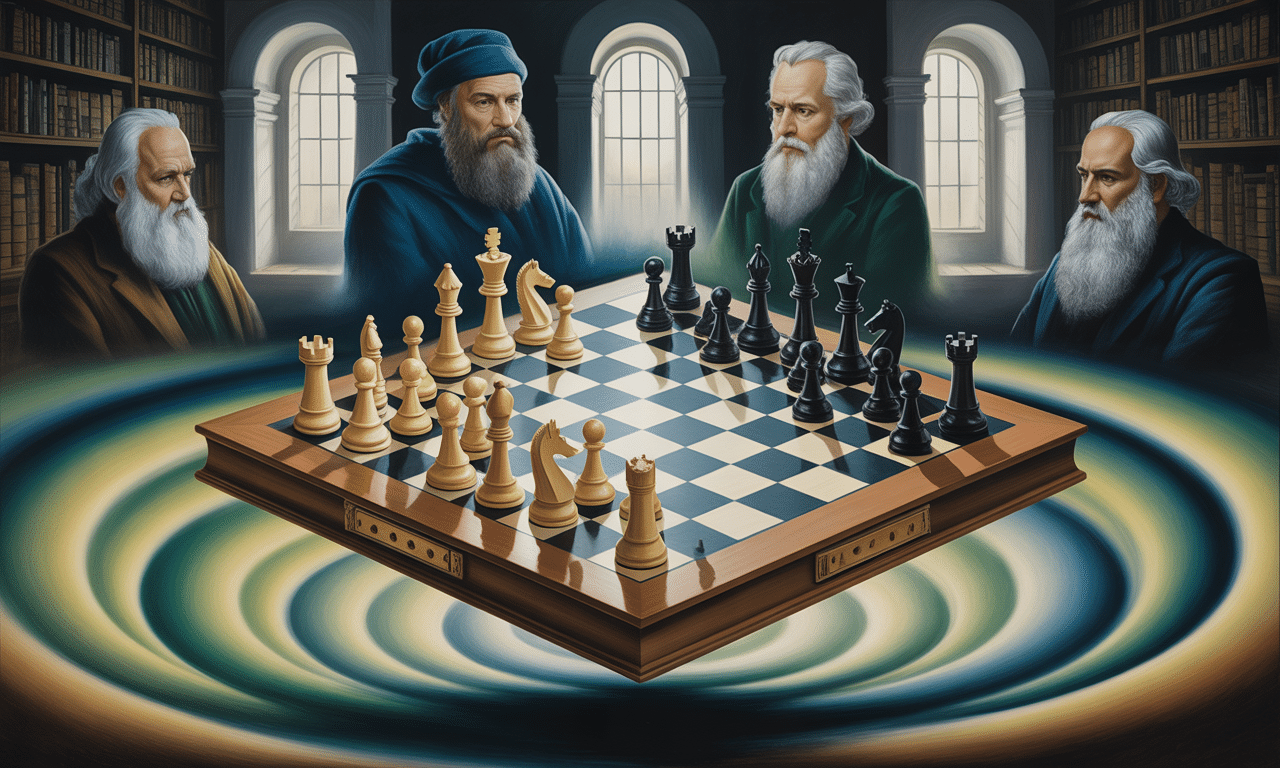 Political Power
Political Power
Power is a fundamental concept in political science, just as money is central to economics. By emphasizing power, political science distinguishes itself from fields like philosophy, history, and law. It goes beyond formal institutions to uncover the real motives and objectives behind political actions and the formation of institutions.
Early political scientists like Frederick Watkins and William A. Robson stressed the importance of studying power in society, its nature, processes, and outcomes, rather than just focusing on the state or specific institutions. They highlighted that political science is primarily concerned with the struggle to acquire, maintain, or resist power and influence over others.
Influences on the Concept of Power
- Thinkers like Machiavelli, Hobbes, and Nietzsche, along with modern writers such as Max Weber, H. Lasswell, A. Kaplan, Watkins, and Morgenthau, have emphasized the importance of power in politics.
- Supporters of the power perspective in politics focus on the acquisition, maintenance, and loss of power.
- H. Lasswell and A. Kaplan defined political science as the study of how power is shaped and shared in society.
- Max Weber described politics as the struggle for power, involving both states and organized groups within a state.
- Michael Curtis viewed politics as an organized debate about power and its use, requiring choices among different values, ideas, and interests. He emphasized understanding how power is obtained, exercised, and controlled, the purposes of its use, decision-making processes, and the context of these processes.
Meaning of Power
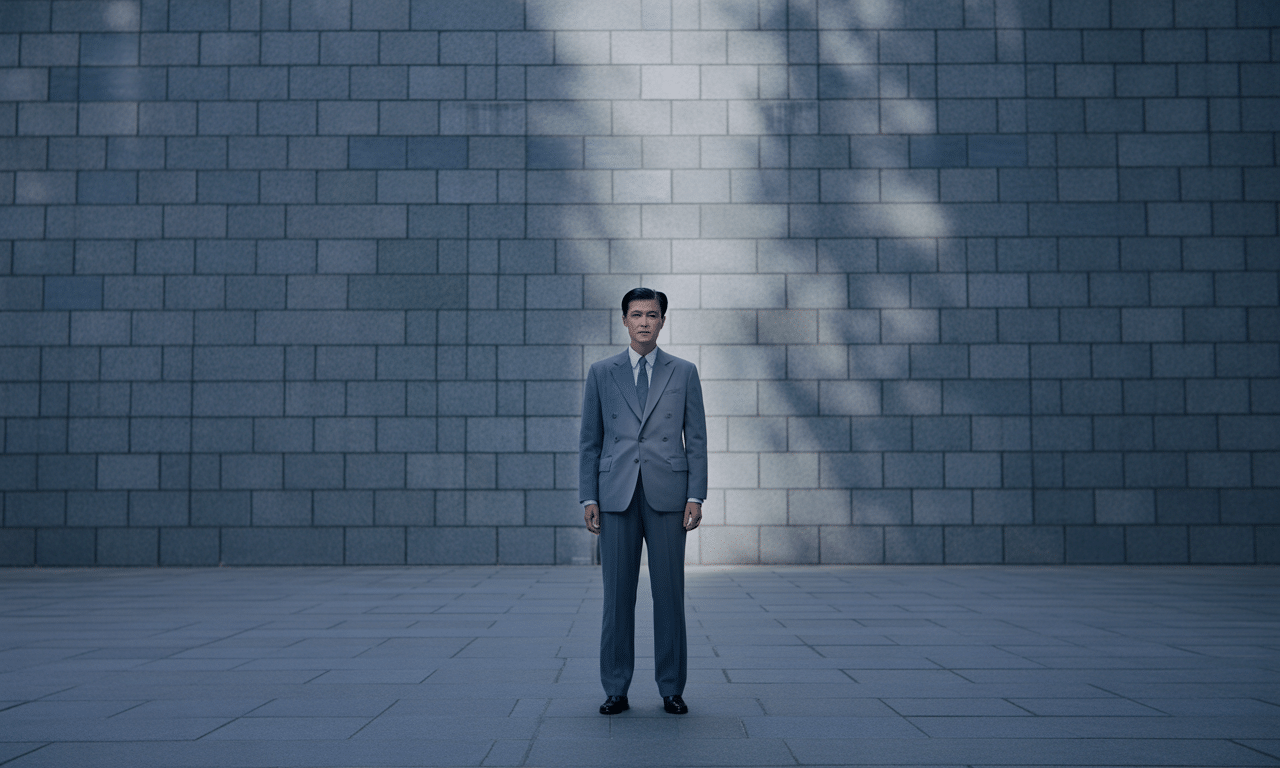 Power Relations
Power Relations
- Bertrand Russell defined power as "the production of intended effects," emphasizing its role in achieving goals and desires, particularly in the context of human relations.
- Robert Dahl viewed power as influence through the threat of severe sanctions for non-compliance.
- H.V. Wiseman described power as the ability to fulfill one's wishes despite opposition.
- Stephen L. Wasby noted that power often involves compelling someone to act against their will.
Authority is a stable form of power that includes legitimacy, or the capacity to gain willing obedience. Coercion is a last resort when legitimacy fails. Authority ensures the acceptance and implementation of rules and decisions.
Authority = Power + Legitimacy
- Power refers to the ability to enforce compliance, while legitimacy means that society members view a rule as beneficial, leading to voluntary obedience.
- Robert M. Maclver described power as the capacity to command compliance in any relationship.
- Max Weber identified three types of authority: traditional (based on customs), charismatic (based on a leader's exceptional qualities), and legal-rational (based on an individual's office, typical of bureaucracy).
- Legal-rational authority is predominant in modern states, where compliance is secured through established procedures rather than personal attributes.
Political Power
Political power is crucial for understanding how conflicts are resolved within a political community. It involves distinguishing between formal organs of power, such as the legislature, executive, and judiciary, and informal sources of power. Formal organs create laws, policies, and decisions that regulate societal values, including taxation, licensing, and regulation of various activities. They also manage law enforcement and military functions.
Political Power
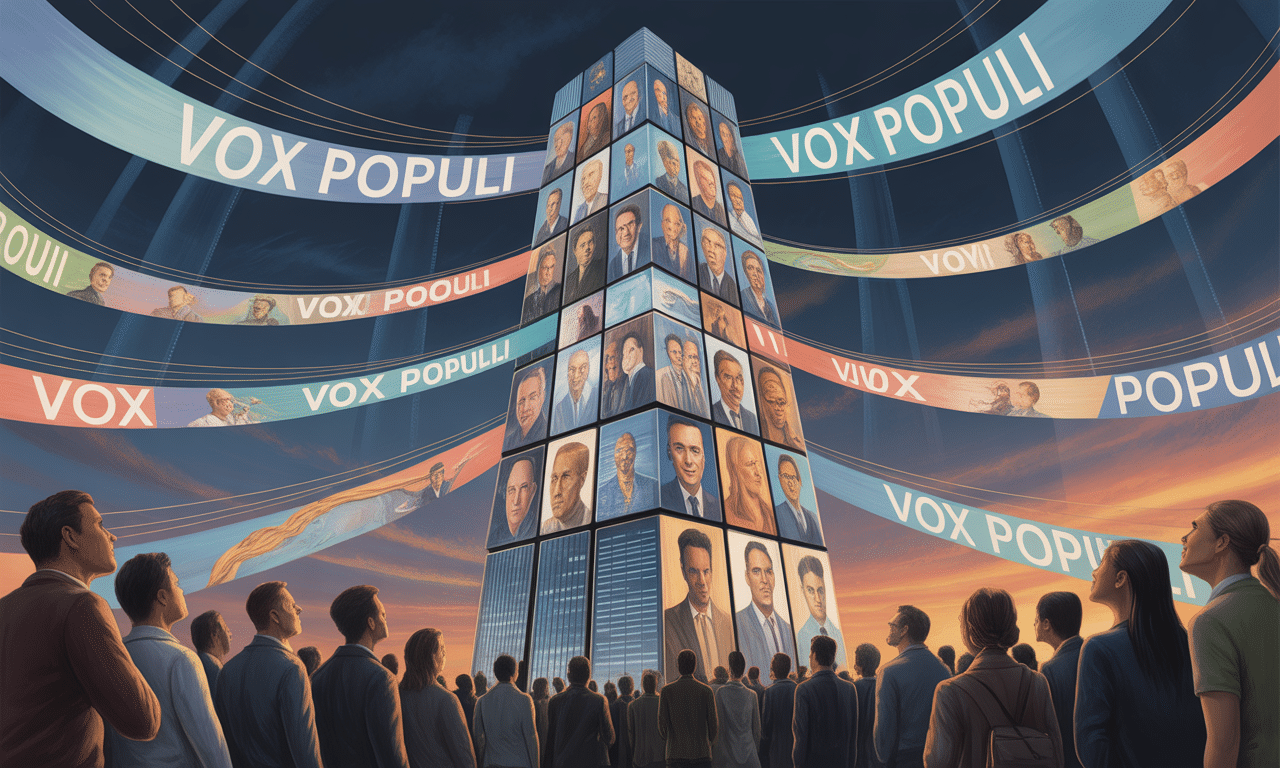 Power Dynamics
Power Dynamics
Political power manifests in various forms beyond just political parties, including pressure groups, public opinion, and popular movements. This indicates that political power is not solely held by formal state organs; rather, these organs respond to the 'inputs' they receive from their environment.
Examples of Political Power
- Independent States: In democracies, public opinion, popular movements, and organised interests directly influence decision-making. The ruling party must regularly seek a fresh mandate from the people.
- Colonies and Dictatorships: In these contexts, struggles for independence and strong popular movements can secure significant concessions or even lead to independence.
- International Arena: Organised groups of nations can influence the 'authoritative allocation of values.' For instance, the ongoing pressure from 'third world' countries on superpowers to change their economic and foreign policies exemplifies this influence.
Politicians are not autonomous; they rely on various groups to stay in power and fulfil their promises. The effectiveness of these groups in influencing political decisions varies.
Economic Power
Definition: Economic power stems from owning material resources, particularly the primary means of production and distribution. This ownership is a crucial factor in politics. For instance, large landlords, industrial tycoons, and business magnates can sway public decisions regarding economic development priorities in a liberal democracy.
Example: In India, organised economic interests have prioritised colour televisions for the urban wealthy, often at the expense of providing clean drinking water for the rural poor.
Ways Economic Power Influences Politics:
- Strength of Pressure Groups: Those with economic power often have stronger, more organised, and vocal pressure groups. In India, for example, chambers of commerce and industry wield significant influence, while workers' unions are weaker, and peasants' unions and consumer organisations are the least powerful.
- Control of Major Newspapers: Many leading newspapers are owned by large business houses, which use these platforms to promote opinions that align with their interests.
- Financial Support to Political Parties: Big businesses frequently provide substantial financial support to political parties and candidates, sometimes covertly. Recipients of such support may publicly advocate for the interests of the masses while privately safeguarding the interests of their financiers.
Ideological Power
Definition: Ideological power forms a subtle yet crucial foundation for political authority. It encompasses the ideas propagated by the ruling class regarding the optimal system of government, which collectively constitute a political ideology. This ideology is essentially a systematic set of arguments and beliefs used to justify a particular social order.
Role in Legitimacy:. fundamental aspect of political ideology is its role in granting legitimacy to ruling classes, thereby aiding them in maintaining control over political power. When the populace believes that a specific government system is the best, they are less inclined to challenge the authority of those in power. Moreover, when people respect and adhere to the laws of the land, the necessity for coercive measures to ensure obedience is diminished.
Characteristics of Ideological Power
- Action-Oriented: Political ideology is inherently action-oriented, presenting a compelling 'cause' for which individuals are willing to fight and make sacrifices. As noted by Alan Ball, individuals are prepared to champion causes, even those that appear hopeless, or to endure suffering in the belief that certain political values are superior.
- Elevation of Ideas: Ideology often lacks a rational basis and elevates certain ideas to the status of 'absolute truth' by tapping into the sentiments of the populace. Consequently, some ideas are held sacred by one group while being disregarded by another.
Manipulation Through Ideology
Concept of Ideological Power: Ideological power refers to the dominance the ruling class exerts over the thoughts and feelings of the populace. It creates an illusion of consent, where individuals appear to approve of the governance of certain individuals and the implementation of specific policies. This manipulation leads people to believe they are governed with their 'consent,' even though the dominant classes dictate the terms of governance.
Ideas of Marx and Engels: Marx and Engels observed that "the ideas of the ruling class are the ruling ideas in every era." They argued that the class owning the means of material production also controls the means of mental production. This means that the ruling class not only shapes economic conditions but also influences the dominant ideas and ideologies of the time.
Antonio Gramsci's Concept of Hegemony: Gramsci introduced the idea of 'hegemony' to explain how the capitalist class exerts ideological dominance in modern society. Hegemony refers to a form of rule where power is exercised with the apparent consent of the governed. This concept highlights how the ruling class secures consent for its dominance by promoting certain ideologies that align with its interests.
Gramsci's Idea of Hegemony
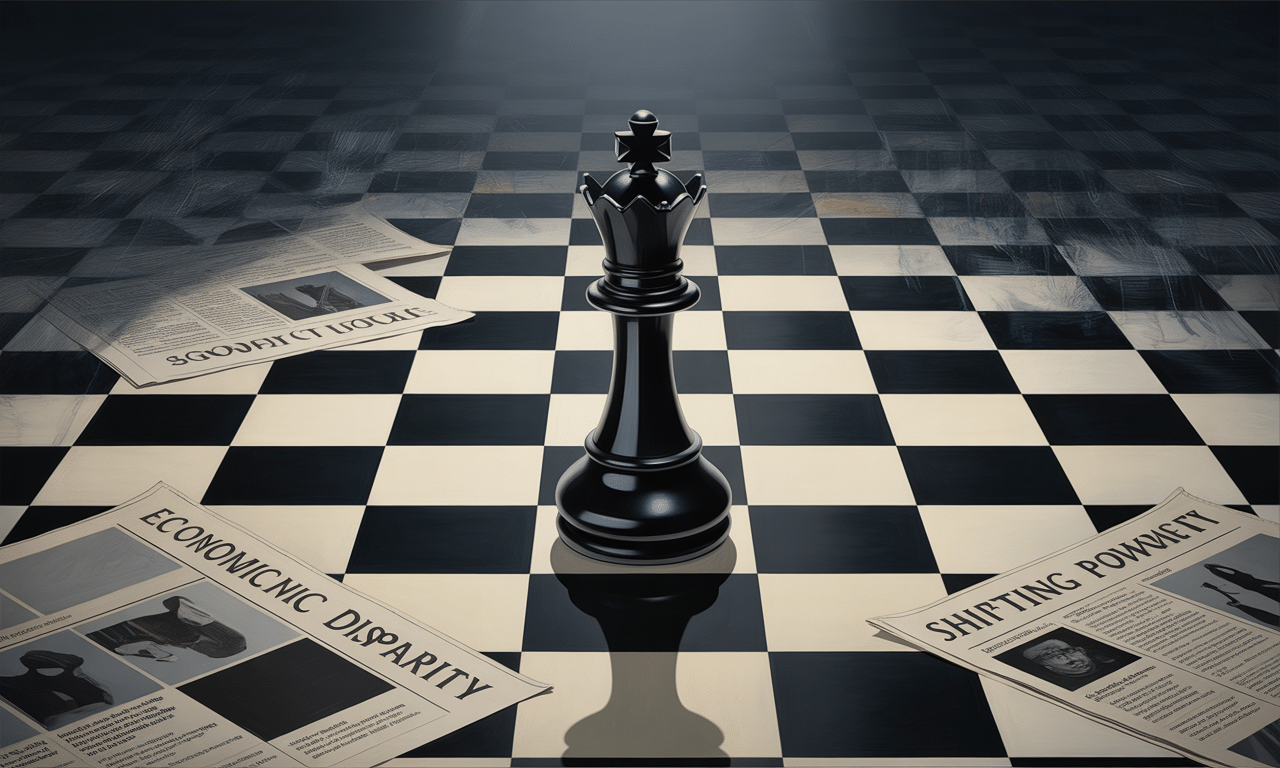 Power Struggles
Power Struggles
Gramsci believed that in a capitalist country, the ruling class maintains its power by controlling 'civil society'. This control is achieved through various socialization methods, including:
- The church
- Schools
- Interactions within peer groups
Gramsci's concept of 'hegemony' also sheds light on why working-class parties have struggled to gain significant political power in capitalist societies. He argued that merely changing the economic system is not enough to dismantle capitalist control; a cultural shift is equally necessary.
Critiques of the Power Approach
The power approach is strong in identifying the main forces behind politics and is applicable to both domestic and international contexts. However, it has several weaknesses:
- Lack of Precision: Power is defined too broadly, making it difficult to classify and measure data for political analysis.
- Oversimplification: The approach reduces all politics to a power struggle, ignoring other important reasons for political engagement. Not all political actors are solely interested in maximizing power.
- Misclassification of Struggles: Not all power struggles, like those among film actors or textile manufacturers, are political. Politics is specifically about public affairs and the distribution of public goods, services, and opportunities.
Understanding Political Power
The study of politics involves identifying the centers of power in society or internationally and understanding how values are allocated in these contexts. This modern approach differs from the traditional view, which focused on the three branches of government—legislative, executive, and judicial—based on formal constitutions. The modern perspective emphasizes informal power structures and seeks to uncover which groups and classes hold real power, despite constitutional claims of equality.
Various perspectives on who holds power include:
- Marxist: Power is viewed through a class lens.
- Elitist:. dominant elite group always rules the masses.
- Feminist: Power is examined from a gender perspective.
- Pluralist: Multiple groups share power within society.
Understanding Power Through Class Struggle
 Class Conflict
Class Conflict
The idea that power comes from class struggle was developed by Marx and Engels in the 19th century. They believed that political power is rooted in economic power, similar to how a tree’s growth depends on its roots. Economic power is determined by who owns the means of social production. Throughout history, society has been divided into two main classes based on this ownership:
- The Wealthy Class: Those who own the means of production.
- The Working Class: Those who do not own these means and must sell their labor.
In ancient times, this division was between masters and slaves; in the medieval period, it was between lords and serfs; and in modern capitalist society, it is between capitalists and workers.
Means of Social Production
- These include resources like land, mines, forests, buildings, machinery, and labor used to produce goods for society.
- In a class-divided society, the dominant class owns all resources except labor, which belongs to the dependent class.
Class and Power
- The theory emphasizes 'class' as the central factor in the exercise of power.
- Those who control the means of social production form the 'dominant class' and impose their terms on the rest of society, known as the 'dependent class.'
- The dominant class exploits the dependent class to maintain its power, while the dependent class has the potential to organize and resist, leading to class conflict.
Historical Context
- Historically, the dependent class was unable to organize effectively or engage in significant struggles against their oppressors until the rise of capitalism.
- Under capitalism, the working class gained the opportunity to form strong organizations and fight back.
- In ancient slave societies, slaves were scattered, making communication and organization difficult. Similarly, serfs in medieval times faced challenges due to their dispersion.
- However, modern capitalism has led to the concentration of workers in large cities, facilitating communication and awareness of their shared struggles against the capitalist class.
Marx and Engels' Vision
- Marx and Engels believed that the collapse of the capitalist class was not just probable but inevitable.
- They called for international unity among workers: "Workers of all countries, unite!"
- They advocated for the forcible overthrow of existing social conditions, warning the ruling classes of a coming Communist revolution.
- The manifesto concluded with a powerful declaration of the proletariat's potential: "The proletarians have nothing to lose but their chains. They have a world to win."
Support and Development of the Idea
- The concept of class struggle was supported by various Marxist figures, including Lenin, Rosa Luxemburg, and Mao Zedong.
- Antonio Gramsci, an Italian Marxist, introduced the idea of 'hegemony', highlighting the subtler forms of capitalist control and adding depth to the strategies for opposing capitalism in contemporary society.
Power and Hegemony
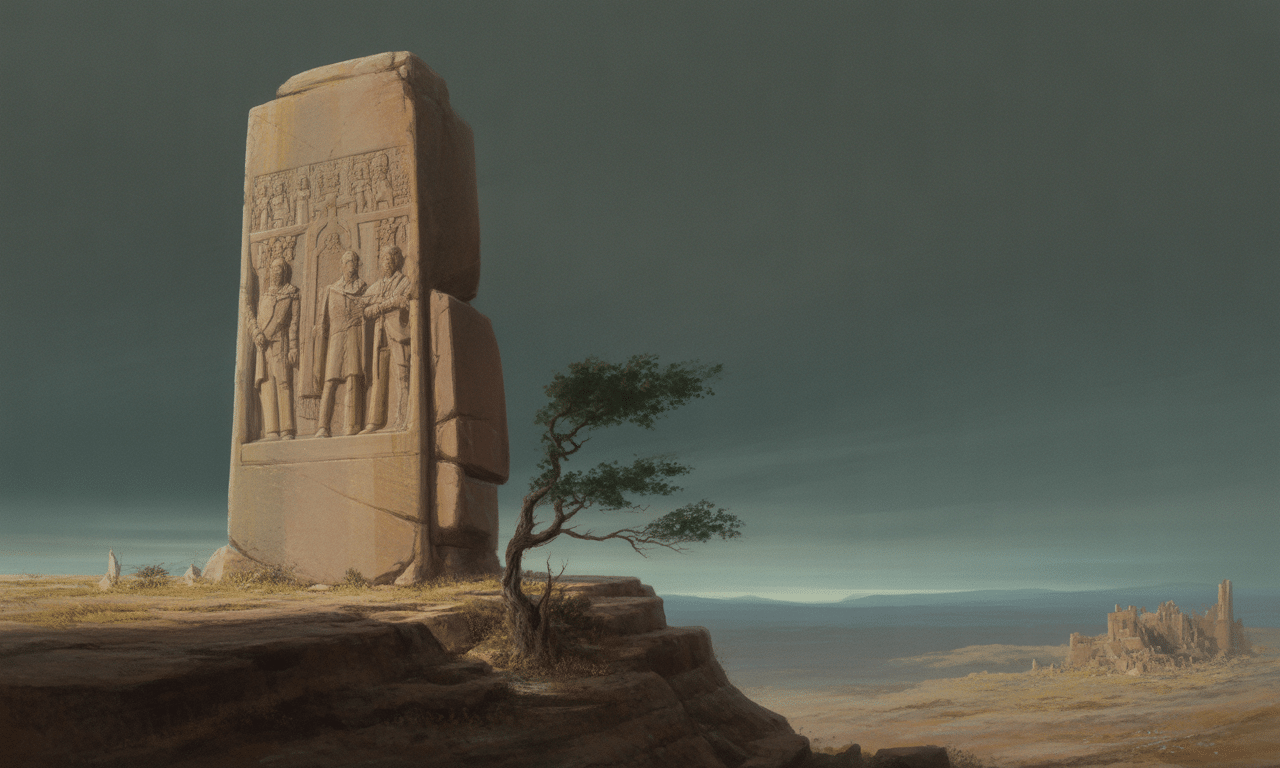 Cultural Conflict
Cultural Conflict
Antonio Gramsci (1891-1937) admired the Bolshevik Revolution (1917) in Russia as a victory of willpower over economic conditions. However, he cautioned that this approach would not work in Western societies where the working class had accepted the current system. He moved away from some traditional Marxist ideas and developed a new understanding of the bourgeois state.
Gramsci pointed out that the true strength of the ruling classes in the West lies in their spiritual and cultural dominance. These classes instill their values in the minds of the populace through civil society institutions. He particularly examined the systems of control within bourgeois culture.
Traditional Marxist theory argued that the economic mode of production forms the base of society, while its legal and political structures, along with various social consciousness expressions—such as religion, morals, and customs—make up the superstructure. It posited that changes in the economic base would lead to corresponding changes in the superstructure. Thus, it focused on the base, viewing the superstructure as needing no independent analysis. Gramsci disagreed, suggesting that the superstructure in modern Western society had achieved a degree of autonomy, making its analysis essential.
Gramsci highlighted two levels of this superstructure:
- Political Society or State, which uses coercion to maintain control. This includes the entire government structure, known as 'structures of coercion.'
- Civil Society, which seeks to gain the consent of citizens to uphold its dominance. This part is closer to the base and has relative autonomy, referred to as 'structures of legitimation.' Gramsci emphasised this aspect of the superstructure.
Gramsci argued that institutions of civil society—such as family, school, and church—teach citizens the rules of behaviour and foster respect for the ruling class's authority. These structures lend legitimacy to bourgeois rule, making even its injustices seem just. This is why they are termed 'structures of legitimation.' They enable bourgeois society to function as if the ruling classes govern with the populace's consent. When power appears to be exercised with the agreement of its subjects, it is labelled 'hegemony.'
Gramsci's Analysis of Bourgeois Society
- Bourgeois Society
- Base: Capitalist Mode of Production
- Superstructure: Legal and Political Structure, Religion, Morals, Social Practices, etc.
- Structures of Domination
- Civil Society: Family, School, Church, etc.
- Political Society: Governmental Organisation
- Structures of Legitimation
- Structures of Coercion
Gramsci noted that the 'structures of legitimation' in bourgeois society typically prevent challenges to its authority. The stability of bourgeois society relies heavily on these structures. Only when civil society fails to suppress dissent does political society resort to coercive measures, including police, courts, and prisons.
Gramsci concluded that the communist movement's strategy should not only aim to overthrow the capitalist class but also address the value system that supports capitalist rule. This value system is likely to endure through civil society institutions, even under socialism. New efforts are needed to transform the culture by instilling socialist values in people's minds. Gramsci believed that it would be pointless to expect true socialism to emerge from the ruins of capitalism.
Gramsci aimed to persuade Marxists to move beyond a sole focus on economics and continue their ideological struggle in culture, art, literature, and philosophy. Revolutionaries must penetrate civil society's autonomous institutions to foster a new mass consciousness rooted in socialist values.
Gramsci was fundamentally a humanist. He opposed all forms of tyranny. He did not want to use revolution to create a coercive state but aimed to democratise all institutions.
Elite Theory
 Power Struggles
Power Struggles
- Developed in the early 20th century by sociologists Pareto, Mosca, and Michels.
- Divides society into dominant and dependent groups, but views this division as natural, based on competence and aptitude.
- Introduces the concept of circulation of elites, where the masses cannot join the elite ranks.
Vilfredo Pareto (1848-1923)
- Used the term 'elite' to describe a superior social group in his work The Mind and Society.
- Distinguished between the governing elite (those in power) and the non-governing elite (those seeking to replace the governing elite).
- Identified intelligence, talent, courage, and cunning as traits of the elite.
- Noted that 'the lions' (courageous individuals) maintain the status quo, while 'the foxes' (cunning individuals) are more adaptable.
Gaetano Mosca (1858-1941)
- In his book The Ruling Class, argued that society is divided into rulers and ruled, with the ruling class holding most wealth, power, and prestige.
- Described the ruling class as a political group representing the interests of influential individuals, especially in a parliamentary democracy.
- Emphasised the ruling class's organisational skills and believed that leadership can arise at various levels.
- Argued that ongoing competition between upper and lower strata leads to the circulation of elites.
Robert Michels (1876-1936)
- Introduced the Iron Law of Oligarchy in his book Political Parties, showing that every organisation ultimately becomes an oligarchy, controlled by a select few.
- Argued that most people are apathetic and reliant on leaders to achieve their social goals.
Michels' Iron Law of Oligarchy
 Power Dynamics
Power Dynamics
Michels argues that any organization may start with democratic goals, but as it expands in size and complexity, management is handed over to professional experts. Over time, these leaders become indispensable for the organization. They use their skills, such as oratory and persuasion, to maintain their authority. Their prominence due to expertise makes it difficult to replace them during re-elections.
- In exercising their power, they often disregard the original objectives of the organization.
This 'iron law of oligarchy' challenges the idea of 'circulation of elites' proposed by Pareto and Mosca. It undermines the hope for democracy in any society or organization, suggesting that all forms of government will eventually become oligarchies. However, critics of Michels argue that this law does not apply uniformly to all organizations. Some members may be more vigilant and assertive than others, and some organizations may be inherently more democratic. For example, political parties may offer more options to their members than trade unions. Michels' observations serve as a caution for those who genuinely believe in democratization.
- This is a type of organization where a small group makes decisions mainly in its own interest, known as oligarchy.
Elite Theory and Its Evolution
The elite theory, initially developed by its advocates, has been applied by later writers to various contexts. Max Weber, a German sociologist, challenged the conventional definition of democracy as 'government by the people'. He redefined it as 'a competition for political leadership'. In his 1918 essay on 'Socialism', Weber emphasized the independence of political power.
- He contended that if socialism is pursued through a revolution, it is likely to result in a dictatorship of officials rather than the proletariat, as Marx envisioned.
- Weber argued that even in a so-called classless society, power would remain concentrated in the hands of a few.
- He believed that a democratic government was preferable as it allowed for open competition in leadership.
This model of democracy was further refined by Joseph Schumpeter, an American economist.
C. Wright Mills and the Concept of the Power Elite
C. Wright Mills, an American sociologist, introduced a revised version of elite theory in his influential book, The Power Elite (1956). He favored the term 'power elite' over 'ruling class'. While the Marxian notion of the 'ruling class' implied that a single economic class held all political power, Mills contended that the 'power elite' comprised various groups holding power due to their high status.
- Mills identified three central groups governing modern American society: captains of industry, military leaders, and prominent politicians.
- These groups constitute a 'power elite' and often share similar cultural and social backgrounds.
According to Mills, the power elites do not gain their power by meeting social demands; rather, they create such demands themselves. They occupy crucial positions within the social structure and form a conscious class that supports one another to enhance their collective power. They project an image of high moral character to gain societal respect, but they often lack sensitivity to their social responsibilities.
Understanding Gender and Power Dynamics
 Gender Inequality
Gender Inequality
Gender Perspective on Power
- The gender perspective on power, rooted in feminist theory, emphasizes the societal division between men and women, with men often occupying dominant positions and women in dependent roles.
- While this division may have originated for humanity's survival and cultural development, it is society that has enforced these roles. Feminists advocate for significant changes to this framework, aiming to liberate women from excessive male control.
Patriarchy and Gender Roles
- The concept of patriarchy reflects the historical and ongoing dominance of men over women.
- Friedrich Engels, in The Origin of the Family, Private Property and the State (1884), observed that in ancient societies, lineage was traced through women, and mothers were highly respected.
- However, with the advent of monogamous marriages, where a woman was tied to one man, this respect diminished. Engels argued that this shift marked a significant decline for women, as men took control within households, and women became subjugated and reduced to mere instruments for reproduction.
The Concept of Patriarchy
- Patriarchy, originally meaning "rule of the father," described a social structure where male heads of households held authority.
- Today, it encompasses a broader system of male dominance and exploitation of women, manifesting in various forms of power over women.
Aspects of Patriarchal System
- Social relations concerning reproduction.
- Violence and its ramifications.
- Sexuality, including the impact of pornography.
- Work culture and employment practices.
Theories on Patriarchy
- Some modern theories propose that patriarchy arises from fundamental conflicts of interest between most men and women due to socially structured gender relations.
- Others argue that biological differences underpin patriarchy, such as men's physical strength being advantageous in warfare and women’s natural role in reproduction.
- Some theorists view male sexuality as a means of controlling women, while others focus on male violence as a form of control.
- Additionally, certain feminists argue that men benefit from women's unpaid domestic labor and underpaid work in the workforce.
Accounts of Patriarchy
Feminist sociologists have put forward three primary accounts of patriarchy:
- Psychoanalytic Influence: This perspective, influenced by French psychoanalysts, suggests that a society's culture is dominated by symbols of male origin.
- Household Domination: The second view posits that patriarchy is fundamentally rooted in households, where men dominate women economically, sexually, and culturally. In this view, the marriage contract is seen as a labor contract where women provide unpaid domestic work in exchange for support.
- Marxist Feminist Perspective: Marxist feminists argue that patriarchy and capitalism mutually reinforce each other. Within households, men benefit from women’s unpaid domestic labor, which relieves capitalists of this cost. Outside the home, women are often relegated to low-paying jobs.
United Nations Report on Women's Exploitation
- A United Nations Report (1980) highlighted the extent of women’s economic exploitation, stating that women make up half the world’s population, perform nearly two-thirds of its work hours, receive one-tenth of its income, and own less than one-hundredth of its property.
Women's Liberation Movement
- The Women's Liberation Movement, which began in the United States in the early 1970s and spread to Europe and beyond, emerged in response to this exploitation.
- It advocated for equal rights and status for women in a male-dominated society.
- Key organizations associated with this movement include:
- National Organization for Women (NOW)
- Boston's Bread and Roses
- Berkeley Women's Liberation Group
- Women's Radical Action Project
- Women's Equity Action League (WEAL)
- National Women's Political Caucus (NWPC)
Women's Liberation Movement
 Women's Empowerment
Women's Empowerment
The Women's Liberation Movement advocated for genuine equality between men and women. It called for a major reevaluation and transformation of various myths, values, and beliefs concerning the status and role of women in society. These changes needed to encompass:
- Work and family life
- Social behavior
- Decision-making
- Politics
- Religion
- Education
- Sexuality
The Women's Liberation Movement aimed to bring about true equality between men and women by challenging and changing deep-seated myths, values, and beliefs about women's status and role in society. This included rethinking aspects of work, family life, social behaviour, decision-making, politics, religion, education, and sexuality.
The movement sparked important discussions on various issues affecting women, such as:
- Day-care facilities for children
- Creating a non-sexist vocabulary, like using 'chairperson' instead of 'chairman'
- Improving the representation of women and their roles in mass media, including advertising
These discussions have led to the introduction of new laws in many countries and have played a part in the global acceptance of new norms that safeguard the dignity of women, even if such changes are not yet universal.
Legislation in India
In India, several important laws have been enacted to protect women, including:
- Immoral Traffic (Prevention) Act, 1956
- Dowry Prohibition Act, 1961
- Indecent Representation of Women (Prohibition) Act, 1986
- Commission of Sati (Prevention) Act, 1987
Group Perspective
 Social Power Shift
Social Power Shift
The group perspective on power is in line with pluralist theory. This perspective differs from the class, elite, and gender viewpoints that categorize society into dominant and dependent groups. Pluralist theory, on the other hand, argues that power is spread across various social groups, such as workers, peasants, traders, industrialists, and consumers, each acting as an independent decision-making entity.
These groups, while holding different shares of power, are interdependent within the social framework, helping to balance each other's influence. Public decisions often emerge from this balance of power. Pluralism not only describes the actual distribution of power in society but also justifies it, advocating for a political system that reflects this diversity. In a pluralist society, power and authority are not concentrated in a few hands but are distributed among multiple decision-making centres.
Historical Context
The contemporary pluralist society is a modern innovation, with its roots traceable to medieval Europe. During medieval times, the monarchy and the church wielded significant control, while craft guilds and feudal lords commanded loyalty within their domains. However, this historical system differs from today's pluralist society, which separates citizens' social and political lives. In the current framework, autonomous groups are encouraged, acting as intermediaries between individuals and the state without competing for authority. These groups represent members' interests, influence policy, and partake in decision-making processes.
In a pluralist society, individuals may affiliate with various competing groups based on their interests and status. Still, they share the same political community, owing allegiance to one state governed by uniform laws and policies, enjoying equal rights. This structure accommodates diverse social customs, cultural traits, and religious beliefs, allowing participation in the political arena through common institutions.
The French thinker Alexis de Tocqueville (1805-59) observed that France's absence of intermediary groups contributed to the French Revolution (1789). In contrast, the United States upheld democracy partly due to the presence of such groups. Tocqueville underscored the importance of intermediary institutions in protecting democracy, suggesting these should not be entirely independent of the state. Modern pluralists advocate for these groups to play a role in shaping government policies and for the government to engage with them in decision-making processes.
Contemporary Pluralist Theory
Contemporary pluralist theory gained prominence in the 1950s, notably through the works of Robert Dahl and Charles Lindblom, including Politics, Economics and Welfare (1953), A Preface to Democratic Theory (1956), and Who Governs? (1961). This theory posits a wide distribution of political resources, with different interests prevailing in various political conflicts. Dahl introduced the concept of 'polyarchy', suggesting that a range of competing interest groups controls society, with the government serving as a neutral intermediary. N. Polsby, in Community, Power and Political Theory (1963), proposed that pluralist research is underpinned by the idea that no single group holds dominance.
Critics of pluralism argue that it focuses primarily on the decision-making process, overlooking significant issues that remain unresolved. Furthermore, while groups may engage in negotiations on equal footing, some may lack internal democracy, leading to dominant leaders or spokespersons. Steven Lukes, in Power: A Radical View (1974), introduced the concept of a ‘third dimension of power’, indicating that powerholders can shape others' desires, suppressing their genuine interests.
Comparative Perspective on Power
 Social Hierarchies
Social Hierarchies
The Issue
- Pluralist theory has undergone modifications in response to criticisms regarding its initial framework.
- Charles Lindblom, in his work Politics and Markets (1977), acknowledges the privileged position of business within market-dominated polyarchies in the West.
- Lindblom argues that these polyarchies are undemocratically controlled by business and property interests.
- Robert Dahl, in Dilemmas of Pluralist Democracy (1982), recognizes that pluralism does not represent an open competition among truly equal political forces.
- To address these inequalities, Dahl advocates for policies that promote the redistribution of power within society.
- In essence, analyzing power through a group perspective necessitates an awareness of the subtle forms of domination that occur both within and between groups.
Relevant Theory
- Marxist Theory
- Feminist Theory
- Pluralist Theory
Nature of Division of Society
- Haves and Have-nots
- Elite and Men
- Several Autonomous Interest-Groups
Basis of the Division
- Ownership of Private Property
- Competence of the few
- Biological Differences
- Diversity of Interests
Role of the Powerholders
- Exploitation
- Organization and Leadership
- Mutual Bargaining
Prospects of Change
- Yes
- No
- Not Needed
Instruments of Change
- Socialist
- Women 's Liberation Movement
The Traditional Perspective on Power
 Social Balance
Social Balance
The traditional view of power focuses on the dynamic between a dominant individual or group (the "agent" of power. and a dependent individual or group (the "subject" of power ). In this relationship, the agent perceives themselves as the ultimate goal and the subject as a means to achieve that goal.
Power Over vs. Power To
- The traditional view primarily emphasizes the agent's "power over" the subject.
- This perspective is crucial for understanding power dynamics.
- The modern view introduces the concept of "power to," which empowers the subject to achieve personal goals.
- Empowering vulnerable groups, such as women or marginalized communities, involves equipping them with the "power to" resist oppression and improve their circumstances.
- Thinkers like Hannah Arendt, C.B. Macpherson, and Mahatma Gandhi have explored this aspect of power in depth.
Hannah Arendt's Perspective
- Hannah Arendt (1906-1975), a German Jewish philosopher, distinguished between "violence" and "power" to offer a positive understanding of power.
- She argued that when rulers use force against the will of the people, it constitutes "violence." In contrast, power inherently belongs to the people.
- Arendt believed that political institutions are manifestations of power, arising when people act on principles of power.
Power as Collective Action
- In her book On Violence (1969), Arendt elaborates on her view of power as a collective human ability to act together.
- She contends that power is not owned by individuals but exists as long as a group remains united.
- Power is the capacity of individuals to act and speak together, and while its outcomes may take the form of political institutions, power itself is not a commodity.
Power vs. Violence
- Arendt's distinction between power and violence is crucial. Power sustains the public realm, while violence poses a threat to it.
- Power originates from the public realm, where people voluntarily create positive conditions for one another. In contrast, violence is a tool of the state used against the people.
- Violence relies on instruments of force and can be possessed, whereas power cannot be owned or stored.
- Arendt warns that in the absence of genuine power, violence may emerge to fill the void.
Authority vs. Power
- In Arendt's framework, authority and power operate in different spheres of action. Authority is linked to command-obedience relationships and creates a hierarchical order based on violence, associated with the state.
- Power, on the other hand, belongs to the people and fosters an egalitarian order based on consensus and persuasion, linked to the public realm.
- Arendt argues that only power can create legitimate authority, while violence can only destroy it.
Public Happiness and Power
- Arendt emphasizes the public nature of power in her essay "On Public Happiness" (1970).
- Using the example of American democracy, she highlights that public participation is essential for individual happiness and freedom.
- Arendt's concept of power critiques the state's use of force and encourages collective efforts to establish and maintain a social order that promotes shared happiness and freedom.
Different Perspectives on Power in Society
 Social Resistance
Social Resistance
Hannah Arendt's View on Power
Hannah Arendt, a political theorist, analyzed power in human society by distinguishing between different types of actions and their implications for power dynamics.
Human Society
Arendt identified three key components of power in human society:
- The People Ruling Class: This refers to the collective body of people who hold power and authority in society.
- Concerted Action: This involves coordinated efforts by individuals to achieve a common goal, reflecting the idea that power is strongest when people come together for a shared purpose.
- Coercive Action: This type of action involves the use of force or threat to compel others to act, highlighting the darker aspects of power dynamics.
Power Violence
- Political Institutions Authority: Refers to the power held by political institutions and their ability to enforce rules and regulations.
- Egalitarian Order:. system where power and resources are distributed equally among all members of society.
- Hierarchical Order:. system where power and resources are distributed unevenly, with some individuals or groups holding more power than others.
Public Realm State
Arendt's analysis emphasizes the complexity of power dynamics in society, where different forms of action and authority interact to shape the social landscape.
C.B. Macpherson on Power
C.B. Macpherson, a Canadian political thinker, delves into the concept of power in his book Democratic Theory—Essays in Retrieval . He categorizes power into two main types: extractive and developmental.
Extractive Power
- This type of power involves using others' abilities for personal gain or having power over others.
- It reflects the ability to benefit from others' skills and efforts.
- Historically, Western political thought, from figures like Machiavelli to James Mill, has focused on this view of power.
- This focus accurately describes power dynamics in a market society, where exploitation and advantage are central.
Developmental Power
- Developmental power, on the other hand, pertains to an individual's capacity to use their skills to achieve self-defined goals.
- In contemporary society, extractive power is often held by land and capital owners who can hire others' skills for their benefit.
- Workers and ordinary individuals, lacking land or capital, can only thrive if they acquire developmental power.
Barriers to Developmental Power
- Macpherson identifies three key barriers to maximizing developmental power:
- Lack of adequate means of life: Refers to insufficient resources for a decent standard of living.
- Lack of access to means of labour: Involves the unavailability of tools and resources necessary for productive work.
- Lack of protection against others: Pertains to the absence of safeguards against exploitation or harm from others.
Macpherson's Solution
- Macpherson argues that these barriers are both technological and material, as well as cultural and ideological.
- He believes they cannot be resolved within a capitalist market society.
- Instead, he advocates for a new system that combines civil liberties protection with socialist production methods.
- This approach would enable individuals to fully utilize their developmental power and achieve creative freedom.
Macpherson's Analysis of Power
Utilitarian View
- Power is seen as a means to maximize utilities for individuals and society.
Moralist View
- Emphasizes the moral implications of power and its impact on human well-being.
Concept of Human Nature
- Different perspectives on human nature influence the understanding of power and its exercise.
As a Consumer
- Power is viewed in the context of consumption patterns and their impact on society.
As a Doer and Creator
- Emphasizes the role of individuals as active participants in shaping their environment and outcomes.
Goal of Human Life
- Different interpretations of the ultimate goals of human life influence power dynamics.
Maximization of Utilities
- Power is seen as a tool to maximize utilities for individuals and society.
Maximization of Powers
- Focuses on enhancing individual and collective powers for better outcomes.
Requisite Type of Power
- Identifies the types of power necessary for achieving societal goals.
Extractive Power
- Involves gaining benefits from others' abilities and resources.
Developmental Power
- Pertains to individuals' capacity to develop their skills and resources for personal and societal benefit.
Consequence of the Use of Power
- Examines the outcomes of power usage on material wants and creative freedom.
Satisfaction of Material Wants
- Power is used to meet material needs and wants of individuals and society.
Creative Freedom
- Emphasizes the importance of creative freedom as an outcome of power dynamics.
Gandhi's Perspective on Power
Mahatma Gandhi, an Indian social thinker, had his own views on power, particularly in the context of India's struggle for independence. Although he did not write a formal essay on his social philosophy, his various thoughts on social issues are quite impactful. One of the key aspects of Gandhi's philosophy is the idea of "power to the people." When the concept of Swaraj (self-rule and self-governance) became central to India's independence movement, Gandhi emphasized that real Swaraj would not come from a few individuals gaining authority. Instead, it would be achieved when everyone gained the ability to resist authority when it is misused. In this sense, Swaraj involves educating the masses to recognize their capacity to regulate and control those in power. Gandhi's approach to power was from the perspective of the ruled. He believed that rulers should not hold absolute power over those they govern. If the ruled felt that their leaders were becoming too powerful, they had the moral strength to challenge this authority. This could be done through protests, social movements, and moral pressure to bring about change. In this way, the power of the ruled resembles the "Socratic function" of speaking truth to power, where individuals have the courage to confront authority when it exceeds its limits.
|
112 videos|389 docs
|
FAQs on O P Gauba Summary: Concept of Power - Sociology Optional for UPSC (Notes)
| 1. What is the significance of power in society? |  |
| 2. How does the elite theory explain the distribution of power? |  |
| 3. In what ways does gender perspective contribute to the understanding of power? |  |
| 4. What is the group perspective on power? |  |
| 5. How does the conventional view of power differ from other theories? |  |
















